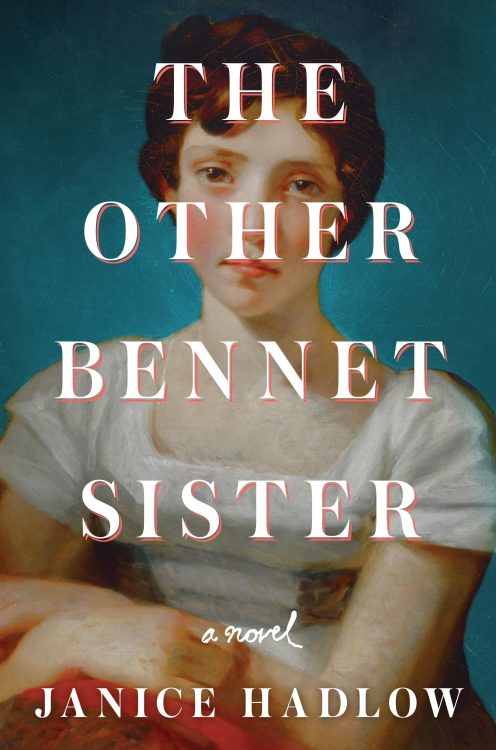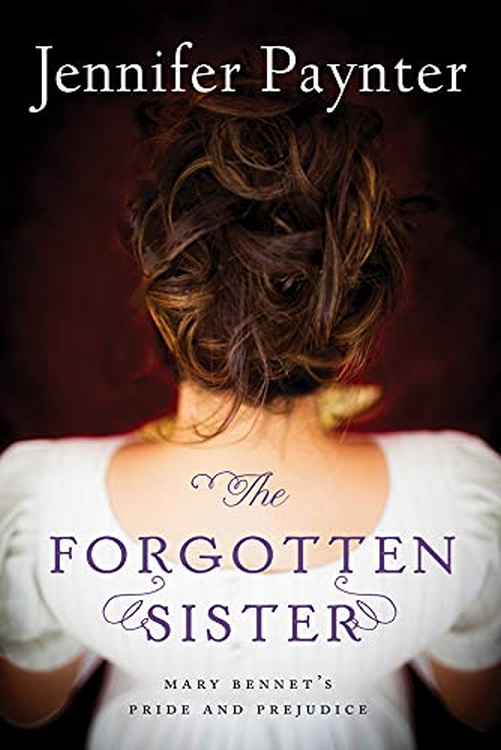From the desk of Laurel Ann Nattress: Happy Friday readers. I hope that you are ready for Halloween. I understand that it will be the first night since 1944 that all three time zones in the US will have a full moon. How appropriate. To put you in the mood for the season, I am... Continue Reading →
Cover Reveal & Exclusive Excerpt of The Secret Life of Miss Mary Bennet: (Book 1), by Katherine Cowley
From the desk of Laurel Ann Nattress: It is no secret that Jane Austen fans crave more stories about her beloved characters from Pride and Prejudice. Novels inspired by Mr. Darcy and Elizabeth Bennet now number too many to even attempt to count. Next in line in popularity from the Bennet family is middle sister... Continue Reading →
The Other Bennet Sister: A Novel, by Janice Hadlow—A Review
From the desk of Sophia Rose: The oft-forgotten of the five Bennet sisters who may have been a reader’s source of amusement or irritation, engendered pity or magnanimous sympathy comes endearingly alive in Janice Hadlow’s gentle opus to Mary, the other sister who must follow a very different path to happiness. The Other Bennet Sister... Continue Reading →
Mary B.: A Novel: An Untold Story of Pride and Prejudice, by Katherine J. Chen – A Review
Of the five Bennet sisters in Jane Austen’s Pride and Prejudice, Mary is the most unlikely of heroines. Priggish, sanctimonious, and unattractive, her prospects for a happy life were bleak. In Mary B., debut novelist Katherine Chen chooses to give Mary her own story – delving into her young, awkward life with her family at... Continue Reading →
A Preview & Exclusive Excerpt of Becoming Mary: A Pride and Prejudice Sequel, by Amy Street
What is it about Mary Bennet—that pedantic, unromantic middle daughter in Jane Austen’s Pride and Prejudice? She has less than a dozen lines of dialogue in the entire novel, but what an indelible impression she has made on centuries of readers. How could anyone forget such gems like these? “I admire the activity of your... Continue Reading →
The Forgotten Sister: Mary Bennet’s Pride and Prejudice, by Jennifer Paynter – A Review
From the desk of Jenny Haggerty: With only half a dozen speeches in Pride and Prejudice Mary Bennet still manages to make an impression. Bookish, socially awkward, and prone to moralizing, it’s hard to picture her as the heroine of a romance novel. Though I’d laugh along at her cluelessness Mary has always had my... Continue Reading →
The Forgotten Sister: Mary Bennet’s Pride and Prejudice Book Tour with Author Jennifer Paynter
From the desk of Laurel Ann Nattress: Please join us in celebration of the new release of author Jennifer Paynter’s debut novel, The Forgotten Sister: Mary Bennet’s Pride and Prejudice, published this month by Lake Union Publishing. Jennifer has joined us to chat about her inspiration to write her book, a revealing look at one... Continue Reading →
A Preview of The Pursuit of Mary Bennet: A Pride and Prejudice Novel, by Pamela Mingle
It is a pleasure to welcome author Pamela Mingle here today at Austenprose. I had the pleasure of reading her new novel The Pursuit of Mary Bennet: A Pride and Prejudice Novel months ago and was very pleased to supply the blurb in praise of this great novel. I felt it is the best continuation... Continue Reading →
The Unexpected Miss Bennet, by Patrice Sarath – A Review
From the desk of Jeffrey Ward: Mary Bennet, that plain, pedantic, priggish, middle sister from Jane Austen’s classic novel Pride and Prejudice, who gave us deadpan lines such as, “I admire the activity of your benevolence…but every impulse of feeling should be guided by reason; and, in my opinion, exertion should always be in proportion... Continue Reading →
A Match for Mary Bennet, by Eucharista Ward – A Review
Jane Austen’s minor character Mary Bennet is not exactly heroine material. With only eight passages of dialogue in Pride and Prejudice she has made a lasting impression on readers over the centuries as a pious young woman who often insensitively offers advice of “threadbare morality” to her family at the most inopportune moments. Author Eucharista... Continue Reading →
I met Mary Bennet today. I kid you not!
Mr. Bennet's expectations were fully answered. His cousin was as absurd as he had hoped, and he listened to him with the keenest enjoyment, maintaining at the same time the most resolute composure of countenance, and, except in an occasional glance at Elizabeth, requiring no partner in his pleasure. By tea-time, however, the dose had... Continue Reading →
The Independence of Miss Mary Bennet, by Colleen McCullough – A Review
But now that I am free, I have no wish to experience any of those things. All that I want is to be of use, to have a purpose. To have something to do that would make a difference. But will I be let? No. My elder sisters and their grand husbands will descend upon... Continue Reading →










